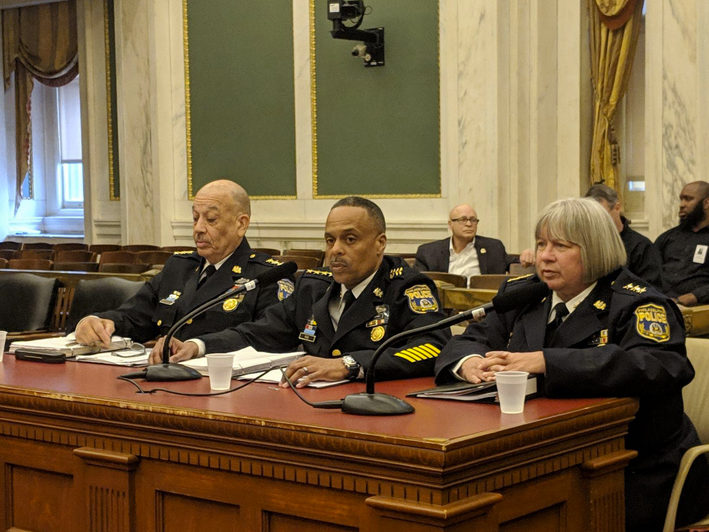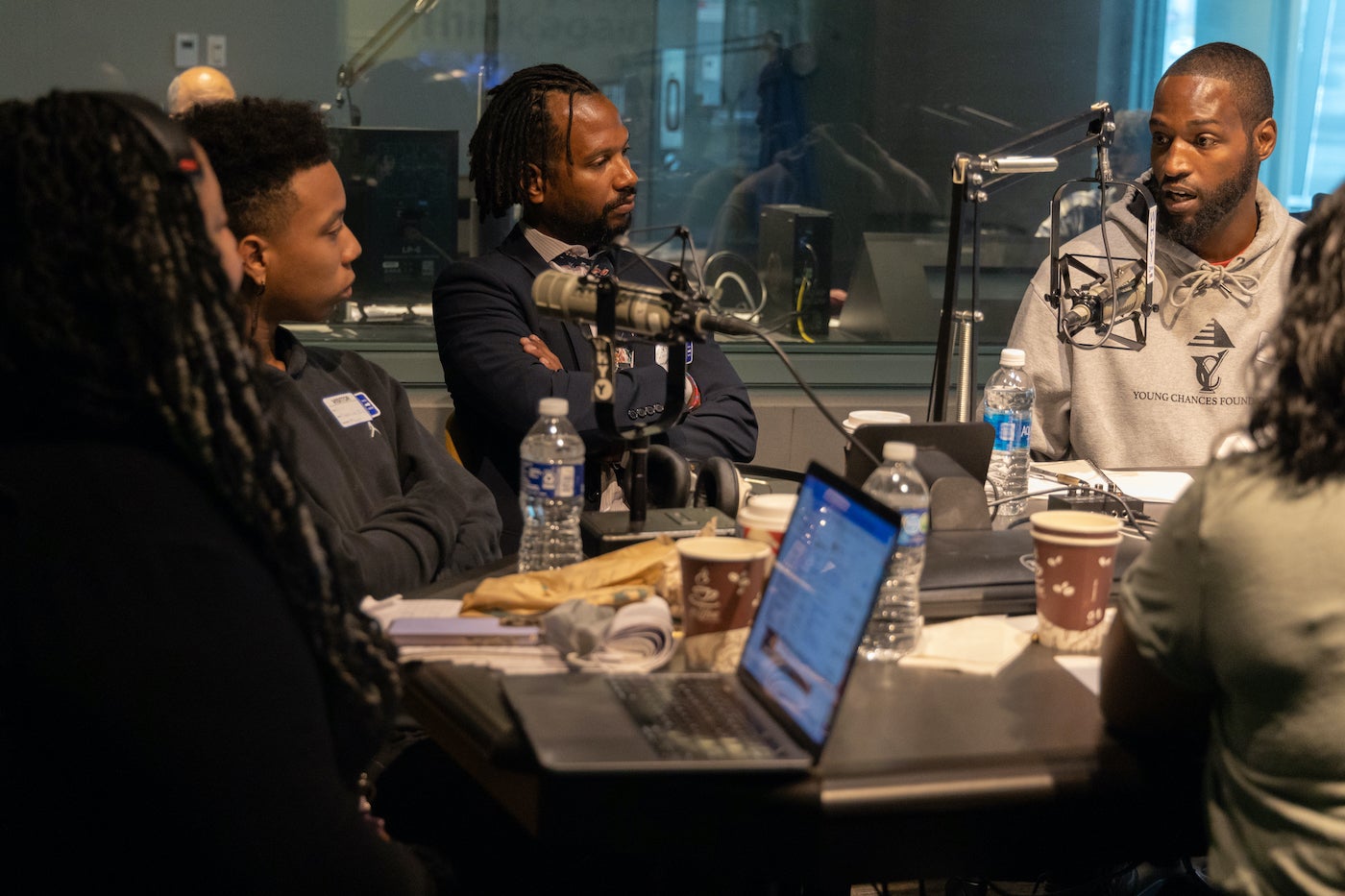‘Stop and frisk’ to remain in Philly police arsenal, Ross tells Council
Ending the police department’s use of "stop and frisk" would be a “road to disaster,” Philadelphia Police Commissioner Richard Ross says.

Philadelphia Police Commissioner Richard Ross, (center), testifies during a City Council budget hearing to request a $29.7 million boost in spending over last year's budget. Deputy police commissioners Myron Patterson and Christine Coulter sat alongside him on Wednesday. (Michael D'Onofrio/The Philadelphia Tribune)
Ending the police department’s use of “stop and frisk” would be a “road to disaster,” Philadelphia Police Commissioner Richard Ross says.
“It is a tool; it is not a crime strategy,” he said, noting the city’s checkered past of unconstitutional stops. “It should not be abused; people should not be unduly stopped and they should not be mistreated.”
During a City Council budget hearing on Wednesday, Ross said ceasing to use the tactic would hamper investigations in a city overrun with guns, where homicides hit a 10-year high last year and drug sales were fueling gun violence.
“What is the alternative? What do you want people to do when you know that there are multiple people carrying guns on the street illegally?” Ross asked in response to At-large City Councilman Allan Domb’s question about the use of stop and frisk.
Mayor Jim Kenney, who appointed Ross, pledged to end controversial practice during his first mayoral campaign. But Kenney has flip-flopped and the tactic remains in use.
Although Kenney has overseen police reforms of the practice, blacks and minorities remain far more likely to be stopped than whites.
Kenney is facing state Sen. Anthony Williams (D-8) and former city controller Alan Butkovitz — both have committed to end stop and frisk — in the Democratic mayoral primary on May 21.
Ross’ appearance was part of a series of public hearings in which the council members are discussing the city budget with department heads as the next fiscal year is scheduled to begin July 1.
Ross, who has led the police department since 2016, seeks $740.9 million for his department in fiscal 2020 — $29.7 million more than last year.
The primary cost drivers are contractual raises for union members and an uptick in staffing — an increase of 72 budgeted positions over last year, according to Ross’ submitted testimony.
The staff increase is part of the city’s new anti-crime initiative known as Operation Pinpoint. The goal is to bring the number of uniformed officers to 6,575 and civilian staffing to 868.
The department has hired 153 officers since November 2018; 35 were black, 86 white and 22 Hispanic or Latino, according to the submitted testimony.
Blacks account for 32% of the department’s full-time staff, whereas whites make up 53% and Hispanics and Latinos 12%, the testimony noted.
The department has issued 1,086 body video cameras to date and is on track to issue 796 this year. All patrol officers are expected to have the technology by 2021, but Ross did not discuss the cost of the program.
Ross says there is evidence that the bodycam program has driven down complaints against police.
“We believe it modifies both officer behavior and, in some instances, civilian behavior,” he said.
Civilian complaints against police officers numbered 312 through the first two quarters of fiscal 2019. Last year, the department received a total of 625 complaints, according to Ross’s submitted testimony.
There were 12 police-involved shootings through the first half of the current fiscal year. In 2018, these numbered 31, according to Ross’s submitted testimony.
Homicides across the city have increased the past two years, reaching 351 in 2018, a level not seen since 2007 when there were 391. The city has logged 104 homicides as of Tuesday, up 14% from this time last year, according to the department’s website.
Marijuana sales directly fueled shootings in 2018, a trend that remains ongoing, Ross said. Legalizing marijuana would not reduce illegal sales or the violence, he added.
“If you are a person involved in drug sales, you’re not automatically going to stop selling marijuana simply because someone legalized it,” he said.
But poverty was at the heart of the city’s homicides and gun violence, Ross said. The combination of poverty, hopelessness, guns and drugs was a “dangerous mix,” he said.
Gun violence and homicides will plague Philadelphia until the city’s 26% poverty rate is addressed, Ross predicted.
Through the first two quarters of fiscal 2019, the police department has solved 40.9% of homicides, known as a clearance rate, according to Ross’ testimony. In 2018, the clearance rate was 47%, but the department’s annual target is 60%.
Ross testified alongside Deputy Police Commissioners Christine Coulter and Myron Patterson.
The hearing on the police department’s budget was cut short after nearly 90 minutes due to a scheduling conflict regarding Ross. The City Council is expected to call Ross to testify again during a future hearing.
215-893-5782, mdonofrio@phillytrib.com
WHYY is your source for fact-based, in-depth journalism and information. As a nonprofit organization, we rely on financial support from readers like you. Please give today.




